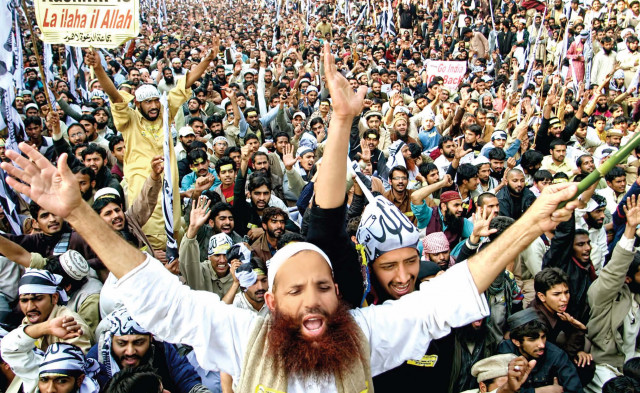Kashmir’s fragile peace
India-held Kashmir saw a whole population rising against the state, demanding the right to self-determination

JD activists shout with enthusiasm, answering the call of their leader who asked them whether they were ready to sacrifice their lives to save Kahsmir. PHOTOS: ABID NAWAZ/EXPRESS
In 1990 militancy started here, then even resistance to the militancy began here in 1995 and the 2008 agitation started from here as well. Though the youth has shown a tendency to take up arms lately but in the opinion of Qazi Yasir most Kashmiris believe in a peaceful resolution of the issue. He believed religion had been misused by some elements during the struggle one tends to agree with him that some pre-requisites need to be fulfilled before launching an armed struggle against any nation.
He conceded that there were disagreements over how to conduct the freedom struggle but as he said this is where the leadership should temper the volatility of the young ones by teaching them the virtue of patience. We agree with him that peace in Kashmir is fragile and also that India and Pakistan should look at the problem from the Kashmiri perspective and try to resolve other issues between them in consultation with Kashmiris for lasting peace in the region.
Published in The Express Tribune, January 5th, 2017.
Like Opinion & Editorial on Facebook, follow @ETOpEd on Twitter to receive all updates on all our daily pieces.














COMMENTS
Comments are moderated and generally will be posted if they are on-topic and not abusive.
For more information, please see our Comments FAQ